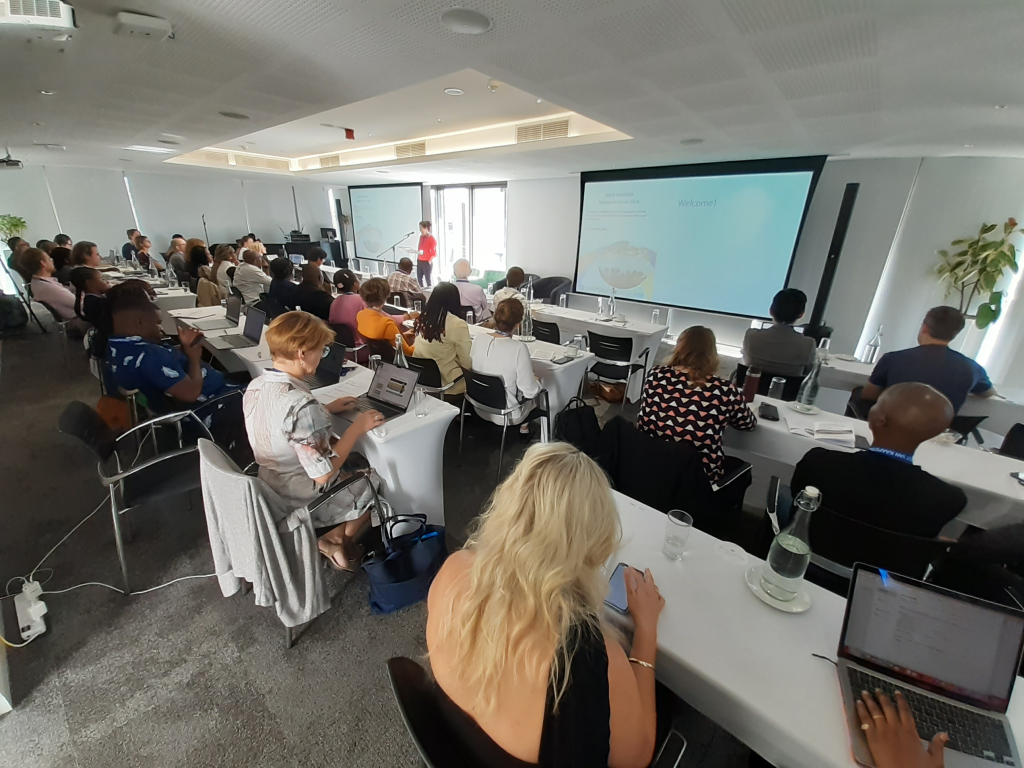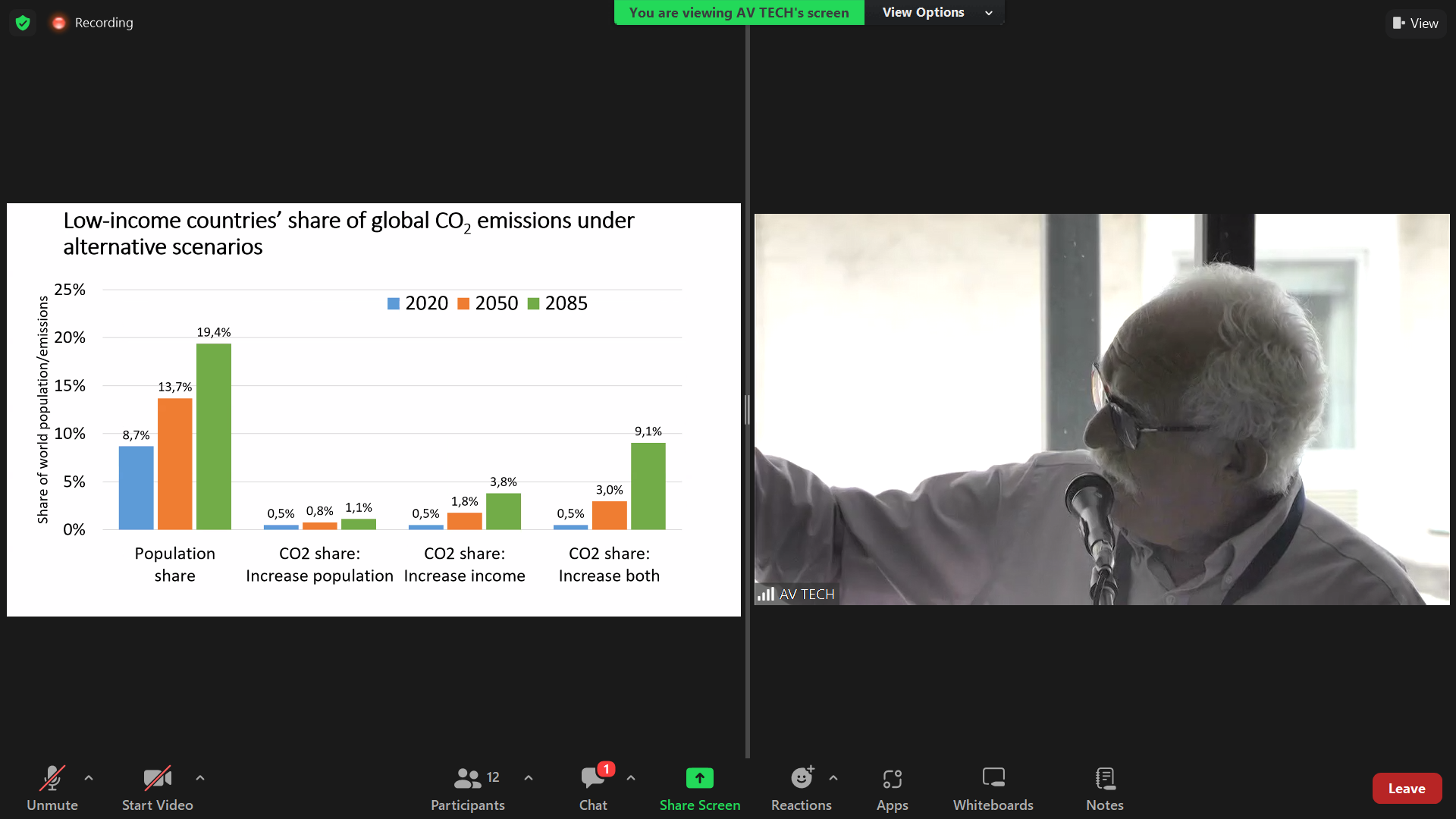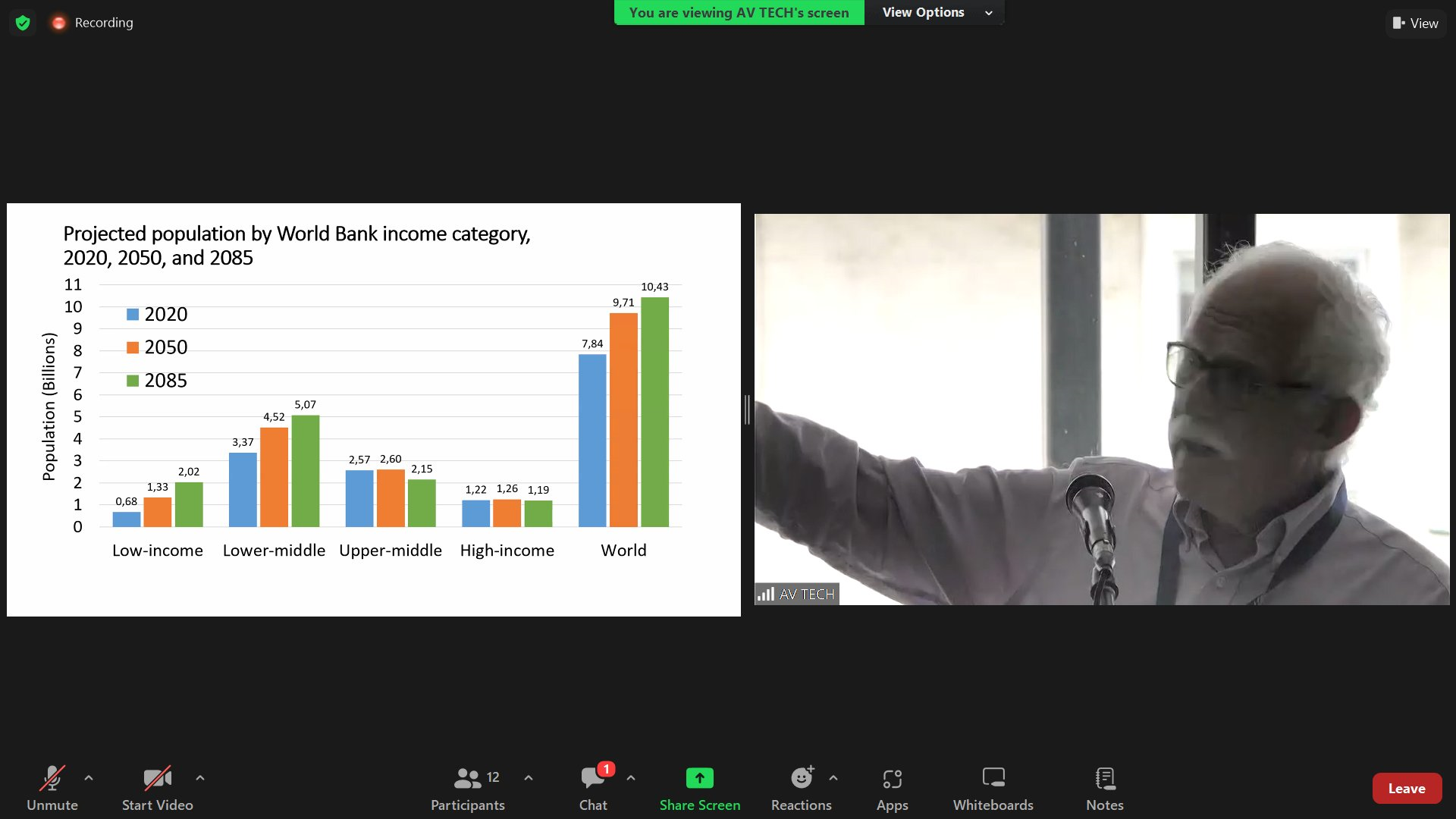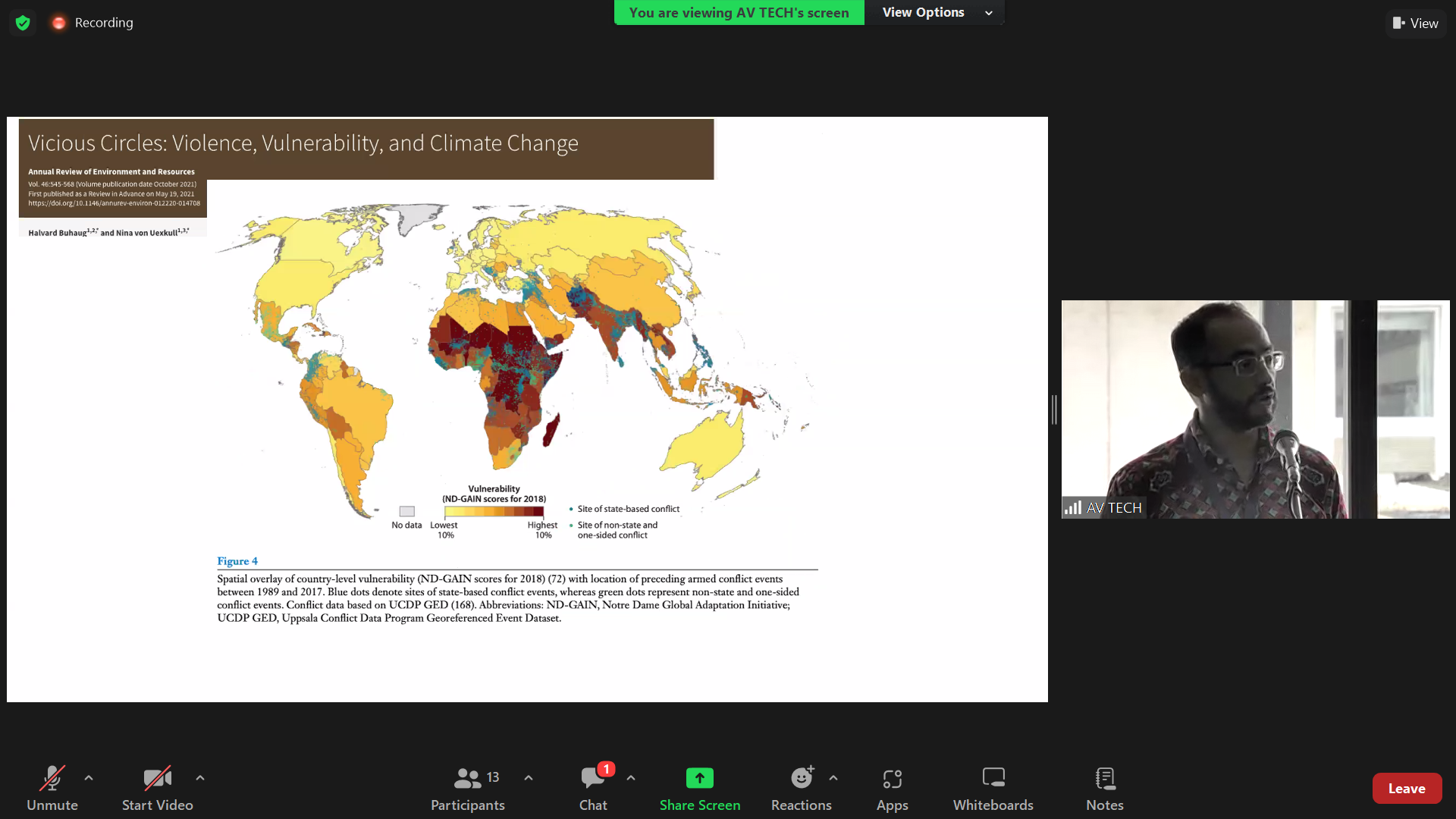Pathways of change in the social response to climate change in unequal societies

A key question in the climate change debate is how to safeguard livelihoods in the social response to changes in availability and access to natural resources.
This question was posed to panellists on the first day of the transdisciplinary ARUA-NISANSA-TSITICA conference in Cape Town, South Africa. The panellists were ACEIR affiliate Prof. David Lam from the University of Michigan; ACEIR researcher Dr Fabio Andrés Díaz Pabón from the University of Cape Town; Belynda Petrie, OneWorld Sustainable Investments chief executive officer; and Malebo Seeletse, Department of Forestry, Fisheries and Environment, South Africa.
Their input and subsequent discussions presented a mixed bag of reflections on innovation, civil society participation and bottom-up decision-making; and the anticipated increase in consumption of natural resources due to projected population growth this century, especially in developing countries. Some takeaways were:
- "You can't deal with poverty, unemployment and inequalities without using more energy, more water and other resources. That's the tension when considering transitions to a thriving net-zero society.": Prof. Lam.
- Income growth in lower-income countries will cause a significant increase in these countries' share in global CO2 emissions, and even a larger share if combined with an increase in their populations (figure 1). The projected population decline in higher-income countries by 2085 (figure 2) will offset much of the impact on global CO2 emissions due to population growth in lower-income countries in the coming decades: Prof. Lam
- Regions most vulnerable to climate shocks are developing countries in the global South. The added burden of (increasing) armed conflict creates vicious cycles of vulnerability, especially in Africa and southern parts of the Indian continent (figure 3): Dr Díaz Pabón.
- Embarking on pathways of livelihoods and a “good life” in a climate crisis is not possible without the inclusion of communities in decision-making processes: Ms Petrie.



The rest of the first day of the conference focused on research on other pathways of change in the social response to climate change: water governance; local pathways – from daily live experiences to strategies and networks; and energy systems and just transitions. The day wrapped up with discussions on linking unconnected actors, sectors, and scales in pathways of change.
Day two moved to how to change pathways in the social response to climate change in unequal societies. Sessions focused on the vote and political representation in climate governance in unequal societies; ambivalences of sustainability; facilitating innovations, institutional and behavioural change; and nature-based solutions as a means for changing pathways of sustainable development.
The research forum also hosted interactive poster presentations, as well as hubs for discussing the role of higher education institutions to foster social innovation and sustainability transformation, and on science communication on pathways of change in the social response to climate change in unequal societies.
